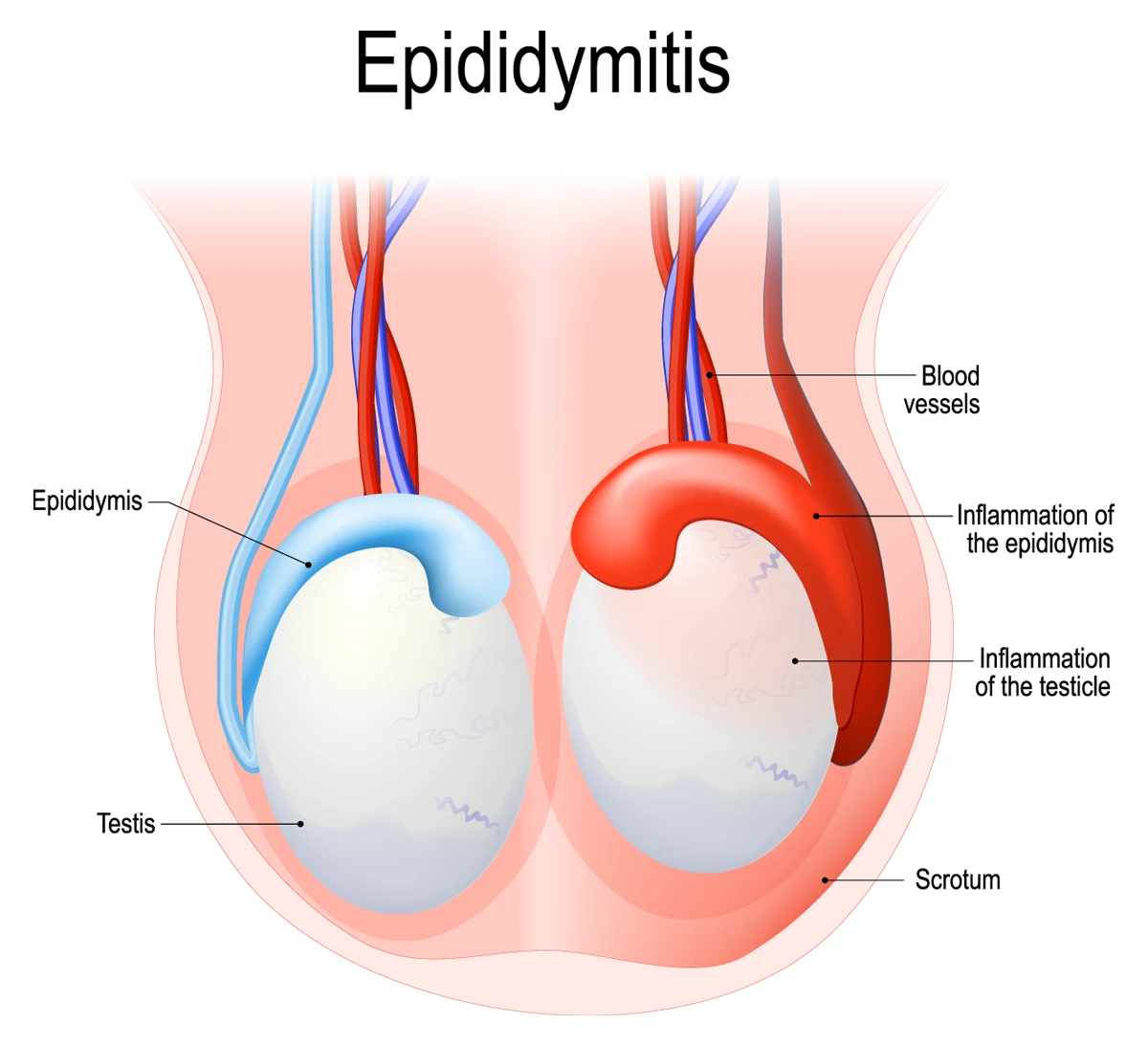Epididymitis
Sexual function issues such as epididymitis can significantly impact your daily life and can be uncomfortable to discuss with your provider. At Advocate Health Care, we approach urological and sexual disorders with empathy and compassion to make getting treatment easy.

Understanding epididymis
Epididymitis is the inflammation of the epididymis, a small, coiled tube responsible for storing and transporting sperm. This inflammatory condition may cause orchitis, which is the inflammation of one or both testicles.
Situated at the back of the testicle in men or individuals assigned male at birth, the epididymis is susceptible to inflammation across all age groups of men. However, it is most common in men aged between 19 and 35.
Several factors may contribute to the development of epididymitis, such as bacterial infections, sexually transmitted infections (STIs) or urinary tract infections (UTIs).
Treatment typically involves antibiotics and pain medication to alleviate discomfort associated with inflammation.
Chronic epididymitis vs. acute epididymitis
Acute epididymitis is often caused by a bacterial infection or STI and typically goes away with treatment. Chronic epididymitis lasts longer than six weeks and keeps reoccurring, even after treatment. Symptoms develop slowly in patients with chronic epididymitis and can take more time to notice.
Causes of epididymitis
Epididymitis can stem from several causes. However, the spread of bacterial infection is the most common. Sexually transmitted infections such as chlamydia and gonorrhea are often the cause of epididymitis in younger men.
Other epididymitis causes include:
- Blockage in your urethra
- Enlarged prostate (Benign prostatic hyperplasia)
- Recent surgery, including prostate, urethra or bladder surgery
- Severe groin injury
- Use of a catheter
Epididymitis can spread through sexual contact. However, you can get epididymitis through the spread of other infections such as a UTI or bladder infection.
Epididymitis symptoms
Recognizing symptoms is key to early detection and getting effective treatment. Common epididymitis symptoms include:
- Presence of blood in your semen
- Chills
- Fever
- Pain in your scrotum
- Painful urination (dysuria)
- Swelling and redness of the testicle
Less common symptoms are:
- Burning sensation during urination
- Pain during ejaculation
- Pain in your groin area
- Testicle pain that intensifies during a bowel movement
Contact your urologist to schedule an appointment if you are experiencing any symptoms of epididymitis.
Epididymitis symptoms are similar to testicular torsion, an emergency condition where blood flow is cut off to the testicle due to the twisting of the spermatic cord. Testicular torsion requires surgery to save the testicle.
If you notice blood in your semen or experience nausea and vomiting that’s accompanied by swelling on one side of the scrotum, seek emergency care.
Diagnosing epididymitis
Your provider will perform a physical exam to determine an epididymitis diagnosis. They will review your medical history and examine your scrotum to check for tenderness or lumps. They may also do a rectal exam to check for enlargement of the prostate gland.
Other tests your provider may use for an epididymitis diagnosis:
- Urine and blood tests: These tests are used to check for bacteria in the blood and urine.
- Ultrasound: A picture is taken of your testicle to rule out testicular torsion or check blood flow to the testicle.
- STI screening: This test involves inserting a narrow swab into the end of your penis to collect a sample of discharge to check for chlamydia and gonorrhea.
Epididymitis treatment
Treatment for epididymitis often includes the use of antibiotics. If your epididymitis is caused by an STI, your sexual partners should also be treated.
Your provider may also prescribe pain medications or recommend over-the-counter anti-inflammatory medications, such as ibuprofen or naproxen.
Other measures you can take for epididymites self-care include:
- Lying down and keeping the scrotum elevated
- Placing ice packs on the painful area
- Wearing supportive underwear
Epididymitis prevention and self-care tips
To reduce your risk of epididymitis, you can develop healthy habits and practice safe sex. Best practices include:
- Avoid strenuous lifting
- Maintain good hygiene
- Minimize prolonged periods of sitting
- Treat urinary tract infections promptly
- Use a condom during sexual activity
Get care
We help you live well. And we’re here for you in person and online.
